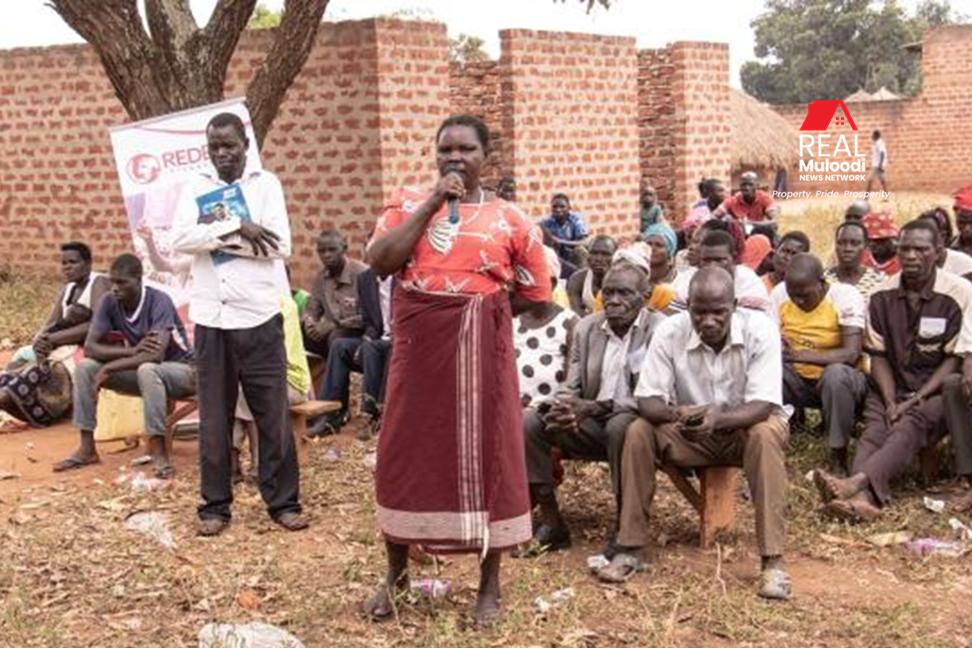UGANDA, Lango | Real Muloodi News | Widows in the Lango Sub-region have raised allegations against Lango cultural leaders, accusing them of exacerbating land disputes and siding with land grabbers instead of protecting customary land rights.
The accusations emerged during a meeting held in Ayer Sub-county, Kole District, where widows expressed grievances over the mismanagement of land disputes by cultural leaders.
They asserted that instead of mediating conflicts over customary land, many leaders were actively involved in facilitating land grabbing and unauthorised land sales.
At the meeting, revelations were made by two clan leaders, Vincent Ebwoga and Tony Okot, who admitted to receiving “compensation” following the sale of customary land.
Ebwoga acknowledged a standard compensation rate of 50 per cent, while Okot cited one per cent as the typical remuneration, although locals disputed these claims.
However, Patrick Abal, the Awitong (clan head) of the Arak-Ongoda clan, defended some clan leaders, emphasising that not all were complicit in land grabbing.
Abal argued that certain leaders were dedicated to upholding the rights of widows to customary land and adhering to guidelines set by the Lango Cultural Foundation and clan constitutions for land management.
Abal also suggested that some widows may fabricate accusations against clan leaders when their attempts to sell land for questionable reasons are thwarted.
The case of Rose Atim, who was denied access to land at the Te-Opok trading centre in Ayer Sub-county after her husband’s passing in 2021, exemplifies the challenges faced by widows in securing land rights.
Godfrey Odongo, the Community Liaison Officer at Kole Central Police Station, expressed concerns that token payments to clan leaders after land sales were fueling disputes, contributing to the rise of street children in urban centres as families grapple with land-related conflicts.
Redeem International, an NGO committed to safeguarding widows and orphans from exploitation stemming from land disputes has intervened in Atim’s case by providing free legal assistance.
Despite the arrest and subsequent bail of the perpetrator involved, Redeem continues its efforts to address similar cases and empower cultural leaders with knowledge on safeguarding widows’ and orphans’ land rights.
Jane Acola, the Community Liaison Officer at Redeem, highlighted the organisation’s campaign to educate cultural leaders on the importance of protecting vulnerable individuals in land-related matters.
A 2011 study by the Land and Equity Movement in Uganda (LEMU) revealed alarming statistics, indicating that 70 per cent of widows in the Lango sub-region and 90 per cent of unmarried and divorced women are victims of land grabbing, underscoring the urgency of addressing this pervasive issue.
READ MORE LIKE THIS:
Lango Region Facing Land Conflicts, Loss of Lives and Investment Project Delays



